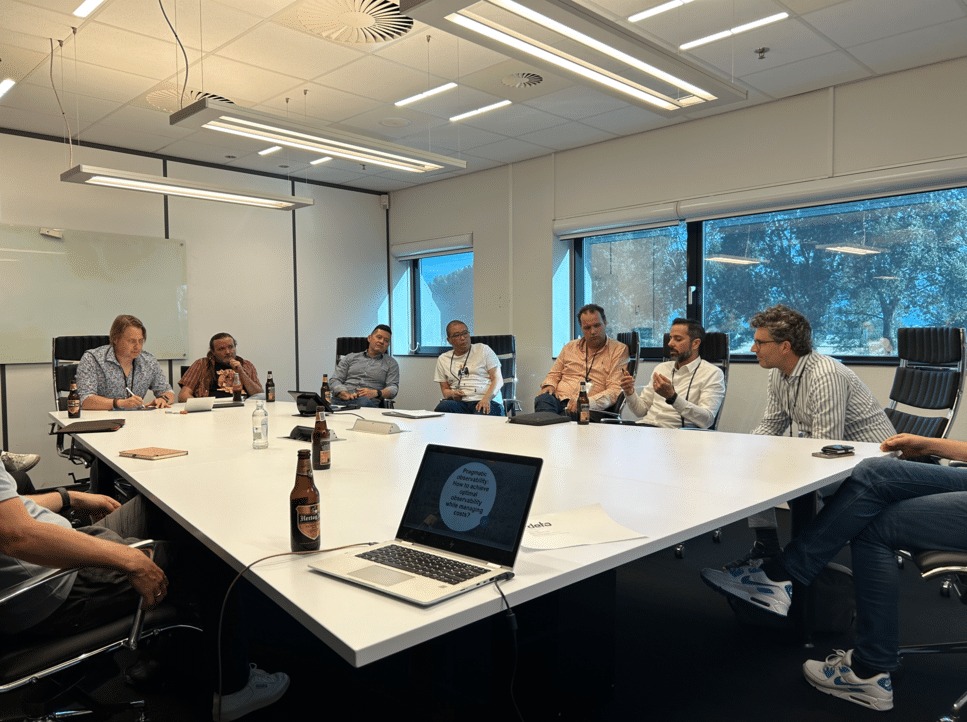In the latest in our Talent Leaders Q&A series, we speak with Claire Mayo, Talent Acquisition/Technical Recruiter @ PROWLER.io, an innovative UK-based firm focusing on AI and machine learning technologies.
Claire explains how she has seen the market and in particular candidate behaviours change over the years. She stresses the importance of employer branding and talks about the relationships between Hiring Managers and Recruiters and how Talent Acquisition professionals can stay up to date in today’s ever-evolving world of recruitment.
Third Republic (TR): Could you explain a bit about the work that PROWLER.io does?
Claire Mayo (CM): Basically, PROWLER is working within the machine learning and AI space to help businesses make decisions. We have several different business streams that we do that in.
Unlike other businesses who may focus on one area, such as security. We are creating a generic platform that allows any business area to ask a question that they can get useful information out of. Essentially, we use our tools and technology to help businesses improve their decision making.
AI and ML are very much buzzwords in the industry now, I know a lot of businesses say that’s what they’re doing. We are definitely coming at it from a different angel, combining different methodologies to help businesses make decisions. Our platform is very good at helping businesses where they haven’t got all the data to hand, bridge those gaps in thier data.
We are about 115 people now and have been around for several years, so I guess we’re no longer technically considered a startup. The nature of the technology that we’re working in, it’s so cutting-edge and we’re trying to create things that haven’t been done before, so there’s definitely something very exciting about that sort of approach.
TR: How did you start your career in recruitment and how did you get into recruiting for the tech industry?
CM: My first role in tech recruitment was for Citrix, which really was a whole new world because it was all about data visualisation. Citrix is where I learnt the trade of direct sourcing. When I started in recruitment, a lot of the roles were contractual, so I moved on to Abcam, a biotech firm, where I set up the recruitment function from scratch. I looked at niches in the business and where talent was coming from.
TR: How do you think recruitment and talent acquisition has changed over recent years?
CM: In recent years, it’s been interesting to see how to attract talent because that is the biggest part of the job. Yes, you have to have the right recruitment processes, but now its so important to get these candidates interested in the role in the first place. You have so many other companies calling out to the same talent, so for me it’s really all about trying to make your company and the role on offer stand out.
I have definitely found that it’s more of a passive market, you have to be proactive in your approach, getting out there and sourcing the people that are the right fit for the role. Engaging talent is definitely the most difficult aspect.
Something I also find very interesting is looking at how younger generations view the job market and how it’s changing, specifically in tech. They probably won’t be using Stack Overflow or LinkedIn to look for jobs, they might be using different tools, so it’s about keeping up to date and working out what is the best tool as we move forward.
Candidates, specifically in the technical market, get so many job offers all the time, that I’ve found for them it’s now becoming very much about finding the right culture in a company that makes a difference. Yes it’s about doing interesting work, and the package as a whole, but you spend so much time at work that it’s important to find the right environment for you.
TR: Do you think that a shortage of skills is driving this change of behaviour towards candidates?
CM: Definitely, I think in most technical roles there is a skills shortage. At the moment, the biggest one for us is, software in test, we’re finding these kinds of roles are particularly difficult to fill. It seems to be that in the market, software in test is more of a progression role, a step on the ladder before becoming a software engineer. It would be really interesting to find out what others think about this sort of area, and what is it about the role that isn’t particularly as attractive.
TR: Do you think that the rise in digital and technology will continue to influence and alter the industry?
CM: I think it will, and there is definitely a useful place for it. I was listening to a podcast by myrecruitingtoolbox where they went back to the basics of Hiring Manager engagement. They were saying that ultimately Hiring Managers want speed and quality, and yes there are lots of tools out there that will help you to achieve this (Chatbots etc.), but that the basics are still getting forgotten, which are about the general relationship building.
While the rise in digital might influence the industry, it’s still all about engaging with your Hiring Managers – really learning what ‘good’ looks like and what ‘bad’ looks like, the give and take in the hiring process, setting realistic expectations, providing market insight etc.
There has to be a balance, definitely keep up to date with technologies and tools that can help you to be more efficient, but ultimately it comes down to human interaction and relationships. Saying that, it’s definitely a two way street between hiring managers and recruiters – the communication should work both ways.
TR: What has the impact of these changes been on candidate behaviour?
CM: I think with the in digital, there are now so many different platforms for talent groups to look for work, it’s about keeping up to date with these changes and how they are changing their methods in looking for work.
Also, candidates are now bombarded with job descriptions, which has definitely made the market more passive. This means that it has become really important to make your brand visible and adding value in other ways.
The shift that I have seen is definitely on the company branding and being visible, as well as keeping up with technology and which channels to use to attract different talent.
TR: Do you think it is getting more difficult to source and engage technical talent?
CM: In general, yes I have definitely found it more difficult. I think it all comes down to the brand, the bigger and more well-known a company is, the easier it might be for the to attract talent. Saying that, you might have a great brand but a mission that people just aren’t engaged with, so articulating that vision and mission in an attractive way is definitely important to – why you rather than one of the bigger brands in the industry?
TR: How should businesses react to the changes in candidate behaviours?
CM: We’re actively working on our career site, as well as the brand and company values to make us more visible. I try to partner with hiring managers to understand what it is that they think appeals to particular skillsets and teams, and then I tailor my messaging based on this.
We have also been partnering with companies to get the message out there about what we are doing as a company. Eventually in the future, it would be good to look at internships and graduate schemes and grow and develop talent from within the business.
TR: We live in an increasingly digital world; how can recruiters keep up to date with the ever-evolving technology and techniques in the industry?
CM: I think there should be a mutual investment from both recruiters and hiring managers to keeping up to date with the market. Both should feel fully responsible for the process and partner together to keep up to date with advancements.
Personally, I keep up to date by listening to various industry podcasts, and networking with other talent acquisition professionals and talking to the market and internal teams.
If you’re looking to source talent, get in touch with our specialist teams today!




